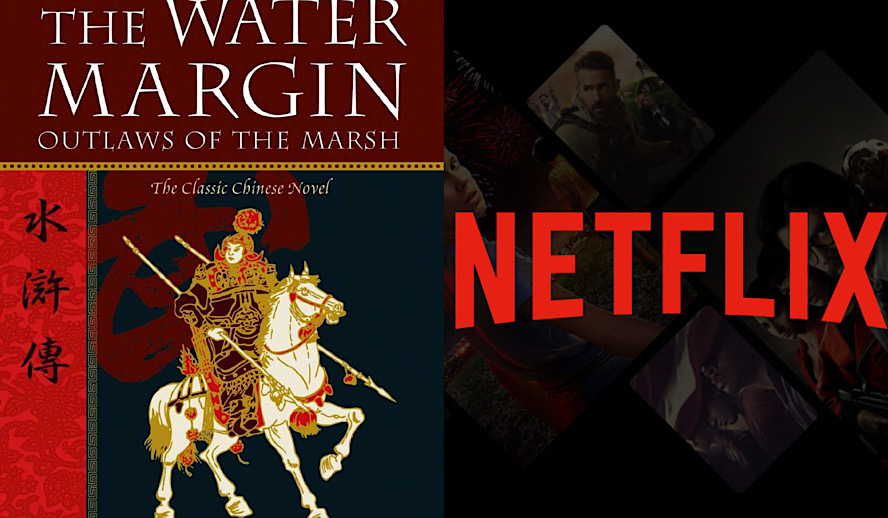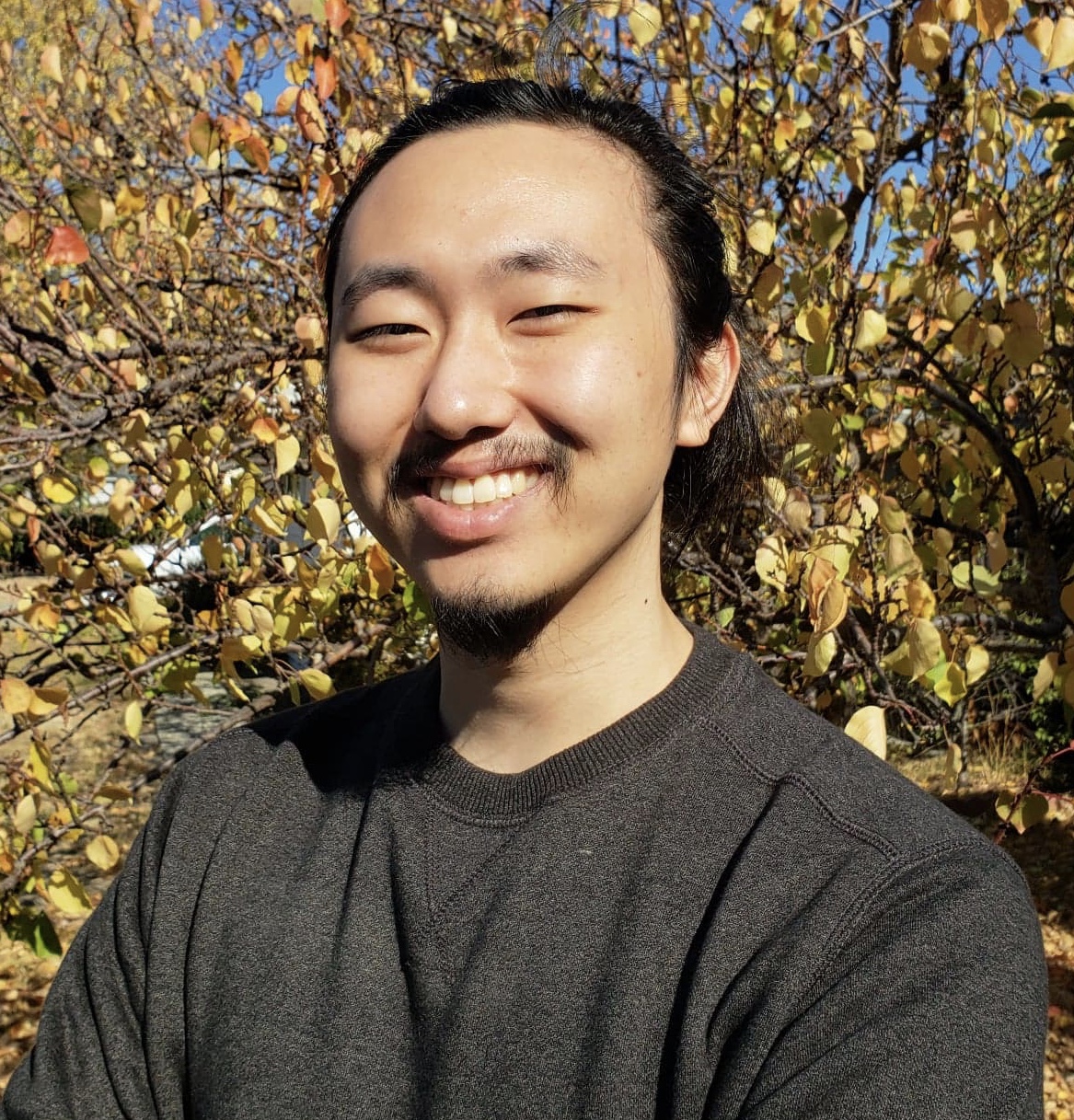Table of Contents

Photo: ‘Water Margin’/Netflix
My knowledge of ‘Water Margin’ and quotations thereof belong to Sidney Shapiro’s 1980 translation, ‘Outlaws of the Marsh.’
Europeans think 100 miles is a long-distance, Americans think 100 years is a long time. The Chinese scoff at both. Theirs is one of the most ancient settled societies on Earth, and even the historical texts now known as the Four Great Classical Novels of ancient Chinese literature are relatively new in the context of their society. Romance of the Three Kingdoms, one of the more prominent of the four, was written about 700 years old, and the historical events that it depicts occurred more than a millennia before that.
I emphasize the history because the Four Great Classical Novels, which also includes Journey to the West, have had enormous, lasting impacts on modern Asian culture, comparable to the impact that Shakespeare has left on the Western sphere. However, almost no Western adaptations exist for film and television.
Related article: The Masters of Cinema Archives: Hollywood Insider Pays Tribute to ‘Dil Se’, Exclusive Interview with Director Mani Ratnam
Related article: The Evolution of Zendaya: From Disney Actress to Emmy Award Winner and Leading Lady
Of the four, Water Margin is lesser-known to Western audiences. Also translated as Outlaws of the Marsh and All Men are Brothers, it has been compared to Robin Hood for its portrayal of righteous outlaws who steal from the rich and fight corrupt authority. However, readers expecting a romantic romp with a merry band of men might be in for a rude awakening.
In the wake of Netflix’s recent announcement that they will be adapting Water Margin under the direction of Shinsuke Sato, I will be examining this monumental work of literature to discuss the reasons why I am simultaneously excited for and concerned about the adaptation.
A Brief Introduction to ‘Water Margin’
Authored primarily by Shi Nai’an, Water Margin was written during the 14th century about real events that took place during the Song Dynasty, incorporating elements of oral folklore surrounding the events.
The first chapter takes place years before the main story when the foolishly arrogant Marshal Hong orders the removal of a sacred seal that had contained 108 demons, also known as the 108 Stars of Destiny. These spirits are released and reborn decades later as 108 heroes who, via the convoluted paths of destiny, come together and form a bandit stronghold at Liangshan Marsh.
The second chapter chronicles the rise of Gao Qiu, a good-for-nothing lout who becomes Grand Marshal because the Emperor favored him for his football skills. Once in a position of authority, he abuses his power to unfairly punish an arms instructor named Wang Jin whose only sin was being the son of a man who once scorned Gao. It is when this arms instructor flees the capital to save himself that the chain of dominos begins to tumble and the story unfolds.
Subscribe to Hollywood Insider’s YouTube Channel, by clicking here.
A recurring theme throughout the novel is that greedy, self-serving government officials stand in the way of justice, with various characters uttering what must’ve been a common idiom at the time, “fear not officials–except those who officiate over you.” The 108 heroes follow their own chivalric code that puts them at odds with the ruling authority, and this general idea is where the Robin Hood comparison comes into play.
The Difficult Narrative Structure
One of the reasons I’m interested in discussing a film adaptation of Water Margin is that the way in which the grand narrative unravels is diametrically opposed to the narrative traditions that have developed in the West.
As mentioned, the novel initially follows Gao Qiu as he becomes Marshal Gao, but when Wang Jin flees, the focus of the narrative goes with him. He eventually becomes the arms instructor to a young man named Shi Jin, with whom he stays for a while before leaving. When he leaves, the narrative recenters on Shi Jin, completely abandoning Wang Jin, and so on and so forth. Thus, although an ultimate plot eventually ties it all together, the story is highly episodic in nature, jumping from one character to another as one storyline ends and entirely different ones emerge.
Marshal Gao is one of the primary antagonists, but unlike a modern villain, whose scheming machinations are often presented concurrently with the story of the protagonists and whose negative effects are felt throughout, Gao completely disappears for large swaths of the novel, occasionally popping up again in one story or another to pin crimes on this person or that one, with no real thread to tie them together aside from the recurring theme of corruption. It’s only much later in the novel when the bandits have coalesced into a veritable army that they clash against Gao in a more conventional conflict.
Related article: The Power of Positivity: Ikorodu Bois + Chris Hemsworth + Russo Brothers + Sam Hargrave
Limited Time Offer – FREE Subscription to Hollywood Insider
Additionally, the extensive exposition of how the 108 heroes eventually come together at Liangshan Marsh is not taken care of within five chapters or ten but encompasses about half of the novel (which is about 100 chapters in length). Many of the most memorable and iconic scenes are what some might consider expository scenes, and these are just as important as what we would consider to be the main narrative of the story.
In this way, though it’s hard to imagine, all 108 heroes are given their own backstories and adventures, some more thoroughly than others. It isn’t unique to Water Margin either–Romance of the Three Kingdoms is equally difficult to read because of a similar narrative style, where a vast quantity of characters is presented within a disjointed narrative. Knowing this, it makes sense that the extant Chinese television adaptations of these works have anywhere between 40 and 100 episodes.
It becomes apparent that adapting these great works into singular films is no easy feat, and it’s made even more difficult by the content of the works themselves.
The Alien World of Ancient China
Obviously, dynastic China is a little different from modern Western society, and there are many recurring behaviors and idioms that are idiosyncratic to the time and place. Some just make me laugh a little and wonder, such as one phrase uttered by various characters at various points, “Of all the thirty-six ways to get out of trouble, the best way is–leave.” What are the other thirty-five commonly known methods of escaping trouble? But this is only a superfluous observation when it comes to examining the foreign sensibilities that pervade Water Margin.
Related article: Hollywood Insider’s CEO Pritan Ambroase: “The Importance of Venice Film Festival as the Protector of Cinema”
Related article: The Masters of Cinema Archives: Hollywood Insider Pays Tribute to ‘La Vie En Rose’, Exclusive Interview with Director Olivier Dahan
Let me tell you about one of the more memorable chapters, in which the antagonist known as Wu Song exacts revenge on individuals who wronged him. Under the cover of moonlight, he approaches an inn where a general, commandant, and gate guard are enjoying a few rounds. He peers into the kitchen and listens to the barmaids complain about their drunk guests. He leans his halberd against the wall, draws his sword, quietly opens the door, and murders them with a few concise stabs, stifling one’s screams as he does so.
He then hides their bodies and sneaks over to the main hall, bursting into the room where his three targets are enjoying their wine. He easily dispatches them and deliberately decapitates them, stopping afterward to enjoy four flagons of wine. Wu then hides in wait as two of the generals’ attendants approach to see what the commotion is about, He quickly kills them, stabbing one in the back.
At this point, Wu thinks to himself, and I quote, “I might as well do this thoroughly.” He seeks out the General’s wife and murders her, intending to decapitate her, but he finds his sword is too dull. He goes back to the kitchen, retrieves his halberd, and returns, only to find the maid known as Jade Orchid, accompanied by two children, lamenting over the corpse of her mistress. He quickly murders her with a stab of the halberd through the heart and dispatches the two children thusly. “One thrust each was enough.”
“I’m satisfied, at last,” he said to himself. “Now I can go!”
As you may have already gleaned, Wu Song is not actually a villain. In fact, he is not only one of the righteous outlaws of the marsh, but one of the most famous characters in Chinese literature. I omitted the fact that the general, commandant, and gate guard from the story above are corrupt officials who had conspired to have Wu Song murdered, but what about the barmaids? The children? You may see where I’m going now when I say that the morality presented in Water Margin is not only alien to a modern Western audience but is downright unpalatable.
Related article: Everything We Know About ‘Don’t Look Up’ Starring Leonardo DiCaprio, Timothée Chalamet, Jennifer Lawrence, Ariana Grande & More
Related article: ‘House of the Dragon’: Everything We Know About HBO’s Game of Thrones Prequel
Of course, it is exactly for reasons such as this that I am so fascinated by Water Margin. What better window exists through which to glimpse into a culture that no longer exists and that is so different from ours? As mentioned above, Water Margin is often compared to Robin Hood for its portrayal of outlaws who rebel against a corrupt bureaucracy, but often I just laugh when a character performs truly heinous deeds and is then hailed for his noble gallantry, and I use the pronoun “his” deliberately.
Women in Water Margin
“All men are brothers,” and they mean it quite literally. Of the 108 heroes, only three are women. Every single other female character in the novel is either a housewife, maid/prostitute, dutiful mother/daughter, matchmaker/bawd (pimp), or, and I use this phrase purely to capture the attitude of the novel, conniving slut.
Song Jiang, leader of the bandits, and the aforementioned Wu Song both have troublesome, unfaithful women as major parts of their exposition. The stories of how they came to murder these women remain among the most notable in Chinese literature, having spawned entirely separate works of literature, film, and opera, which speaks highly to the deeply ingrained culture of codified misogyny.
With Wu Song, it was his elder brother’s wife, Pan Jinlian or Golden Lotus, who began cheating on Wu the Elder with a richer, more handsome man named Ximen Qing with the help of the neighborhood bawd Mistress Wang. Eventually, Wu the Elder discovers their adultery and is poisoned to death by his wife, again facilitated by Wang. When Wu Song returns home and discovers the plot, he murders both Pan Jinlian and Ximen Qing.
Related article: A Tribute to Hugh Jackman: His Rise and Journey from Theater to Superhero
(I would like to quickly note that upon killing Pan Jinlian, he cuts her open, removes her heart, liver, and entrails, and decapitates her, just to remind you that that sort of behavior is par for the course and considered justifiable.)
Corrupt officials play a part in this story, too, as they do in almost every facet of the novel. Wu Song initially goes to the authorities with evidence that his brother’s murder had been a conspiracy, but due to Ximen’s connections and wealth, they do nothing about it. Therefore, he is forced to take matters into his own hands.
The officials sympathize with Wu and the magistrate fabricates an outlandish story about how Pan and Ximen had provoked Wu and forced him to kill them, and so he’s let off with a slap on the wrist. This is but one example of what I call “positive corruption,” which also recurs throughout the novel. Mistress Wang, on the other hand, is paraded into the town square on a wooden donkey and publicly sliced into pieces.
With Song Jiang, his wife Yan Poxi, whom he purchased from her mother, begins openly cavorting with his assistant Zhang Wenyuan, but this alone doesn’t really bother Song Jiang. As stated in the novel, Song Jiang is a man of gallantry and therefore does not care much for the company of the women.
Unfortunately, Yan discovers a letter written in gratitude to Song by the Liangshan bandits for his role in assisting them with one of their escapades, and she refuses to be reasonable when Song asks her to keep it discreet. In a fit of rage, he slits her throat so deeply that it “dangled loosely on the pillow.”
Related article: ‘House of the Dragon’: Everything We Know About HBO’s Game of Thrones Prequel
Related article: X-Men The Anime: One Of Their Best Iterations, Now On Netflix
When her mother discovers the corpse, not only is Song completely unapologetic to her but she herself says, “The jade was no good. You weren’t wrong to kill her. But now I’ve no one to support me in my old age.” To her credit, she later tries to get Song arrested, who escapes prosecution because of sympathetic officials.
Obviously, these attitudes about women are extremely problematic. Although there was some nuance and women were not entirely barred from achieving prominence, they were still definitively considered inferior to men. Throughout the novel, women are by-and-large treated as property.
Nevertheless, as unpalatable as this may be, it would be an even greater disservice to whitewash the story for the sake of appealing to modern sensibilities. The novel reflects the truth of its time, which is one of the major reasons that not only it, but any historical text has value. Additionally, to deny the failings of the past is to deny the progress that we have made. If the adaptation of Water Margin stays true to its depiction of the culture, it could serve as a poignant critique of not only the ancient world but a reminder of how the past informs the present.
There’s no conceivable way that Director Shinsuke Sato could feasibly fit the entirety of Water Margin into a single feature-length film, so there will inevitably be omissions or alterations to the story. My only hope is that it will stay true to the spirit of the source material. That said, let’s briefly look at Sato himself and what little we already know about the planned adaptation.
Related article: Netflix Releases Their Best Animated Short Yet with the Beautifully Emotional ‘Canvas’
Related article: An Analysis: ‘Evermore’ Incites A Deep Dive Into the Historic and Cinematic History of Taylor Swift Music Videos
The Director, Shinsuke Sato
Director Shinsuke Sato is most widely known for his plethora of manga and anime adaptations, which comprise the bulk of his filmography. Notable examples include Bleach, which marks the first entry in his partnership with Netflix, and Alice in Borderland, a television series that will premiere on Netflix in December 2020.
Bleach was faithful to its source material and relatively well-received, but Sato achieved even greater critical success with his 2019 film Kingdom which, based on the manga of the same name, takes place in the Warring States period of ancient China.
Although this seems like a good template for judging his ability to adapt Water Margin, there are two main issues that arise. The first is that Kingdom, while depicting the world of ancient China, is not actually a product of the time, and so the film cannot speak to Sato’s ability to portray the alien values of the novel.
The second issue is that, based on preliminary reports, Sato’s Water Margin will be a futuristic take, rather than taking place in the original setting. This is the aspect of the adaptation that gives me pause. I understand that the core values and basic storyline could be extracted and imposed on a futuristic setting, but then so much of what I personally value in the original novel is lost.
Related article: Video | The Artist Evolves: All Leonardo DiCaprio Roles & Performances, 1980s to 2020 Filmography
Related article: Video: The Evolution Of Johnny Depp Filmography – All His Roles & Performances From 1984 to 2021
If the exact same cultural values of the novel are imposed on the futuristic setting, then it could serve as a dystopia that reflects the latent misogynistic aspects of our present society. However, my hunch is that the film will merely take the action-adventure elements of the novel, combined with the recurring themes of political corruption which, in fairness, are still highly relevant today, to create a somewhat straightforward adaptation that adheres to modern sensibilities.
Water Margin: The Next Mulan?
At the end of all this, I must assert the facts that this is just my opinionated preference on what I would like to see in an adaptation of historical work. It’s all somewhat irrelevant in the face of what it means for a film, or any work of art, to exist in its own right.
Disney has produced a myriad of films based on old stories, all watered down for the sake of appealing to Western audiences and children, and they’ve all been great films in their own right.
Aladdin, for instance, is based on the classic Arabian story One Thousand and One Nights, the premise of which is that the monarch Shahryar takes a virgin every night and has her beheaded the next morning. The narrator, Scheherazade, must tell a never-ending story to stave off her own death, hence, One Thousand and One Nights. However, would I critique Aladdin for ignoring this aspect of the story? Absolutely not.
Related article: Powerful Technique for Success, Personal Development and Leadership
Related article: Video: The Evolution of Armie Hammer – All His Roles & Performances From 2006 to 2020
But speaking of Disney, Chinese netizens have already taken to social media to express their concerns that Water Margin might be the next Mulan, which attracted controversy for its own mishandling of Chinese culture. “It’s a Western film with a Chinese backdrop,” one Zhihu user said, and it’s a valid concern going into an adaptation of a work of literature as monumental as Water Margin.
Closing Thoughts
Netflix has attained critical success with The New Legends of Monkey, a remake of a Japanese television series based on Journey to the West. This marks the first major Western adaptation of any of the Four Great Classical Novels, which I find hard to believe as they are so important to not only modern Chinese culture but to the greater East Asian cultural sphere. There are dozens of extant adaptations, none of which have been produced for a Western audience, and that is why I am so fascinated by the upcoming Water Margin.
At the end of the day, so little is known about the film that any speculation would be unfounded. I only write this feature with the goal of shedding some light on this landmark piece of Chinese literature that is finally seeing a Western film adaptation.
By Daniel Choi
Click here to read Hollywood Insider’s CEO Pritan Ambroase’s love letter to Black Lives Matter, in which he tackles more than just police reform, press freedom and more – click here.
An excerpt from the love letter: Hollywood Insider’s CEO/editor-in-chief Pritan Ambroase affirms, “Hollywood Insider fully supports the much-needed Black Lives Matter movement. We are actively, physically and digitally a part of this global movement. We will continue reporting on this major issue of police brutality and legal murders of Black people to hold the system accountable. We will continue reporting on this major issue with kindness and respect to all Black people, as each and every one of them are seen and heard. Just a reminder, that the Black Lives Matter movement is about more than just police brutality and extends into banking, housing, education, medical, infrastructure, etc. We have the space and time for all your stories. We believe in peaceful/non-violent protests and I would like to request the rest of media to focus on 95% of the protests that are peaceful and working effectively with positive changes happening daily. Media has a responsibility to better the world and Hollywood Insider will continue to do so.”
More Interesting Stories From Hollywood Insider
– Want GUARANTEED SUCCESS? Remove these ten words from your vocabulary| Transform your life INSTANTLY
– Compilation: All James Bond 007 Opening Sequences From 1962 Sean Connery to Daniel Craig
– Do you know the hidden messages in ‘Call Me By Your Name’? Find out behind the scenes facts in the full commentary and In-depth analysis of the cinematic masterpiece
– A Tribute To The Academy Awards: All Best Actor/Actress Speeches From The Beginning Of Oscars 1929-2019 | From Rami Malek, Leonardo DiCaprio To Denzel Washington, Halle Berry & Beyond | From Olivia Colman, Meryl Streep To Bette Davis & Beyond
– In the 32nd Year Of His Career, Keanu Reeves’ Face Continues To Reign After Launching Movies Earning Over $4.3 Billion In Total – “John Wick”, “Toy Story 4”, “Matrix”, And Many More
Water Margin, Water Margin, Water Margin, Water Margin, Water Margin, Water Margin, Water Margin, Water Margin, Water Margin, Water Margin, Water Margin, Water Margin, Water Margin, Water Margin, Water Margin, Water Margin, Water Margin, Water Margin, Water Margin, Water Margin, Water Margin

Daniel Choi is a writer who’s currently pursuing a BA in Film & Television from New York University. With a background in amateur film production, Daniel is fascinated by how artists’ cultural backgrounds inform their work, subconsciously or not, and how that work is then perceived by different audiences across time and space. He joined Hollywood Insider to promote its mission statement of substantive entertainment journalism, and hopes to enrich readers’ understandings of cinema through insightful analysis.








